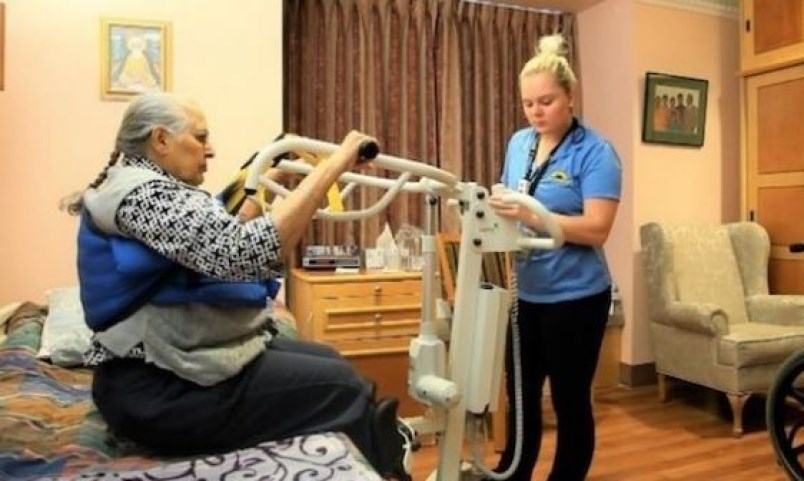It’s a “frightening” time for 500 or so care aids working in one of Richmond’s six long-term care facilities and the for residents living in them.
That’s according to their B.C.-based Hospital Employees’ Union (HEU), which is in the thick of helping its members adhere to the B.C. government’s “one site direction,” from March, which dictates that care aids can only work at one facility, as opposed to the multiple many of them worked at previously.
However, at the crux of that transition – designed to stop or slow the transmission of COVID-19 among society’s most vulnerable population – is the requirement for wages to be standardized across the region.
And even with the B.C. government promising to partly subsidize the “wage standardization,” the process isn’t moving nearly quickly enough for HEU’s secretary-business manager, Jennifer Whiteside.
“Many of our members have to work at multiple part-time jobs at multiple sites in order to make a living,” explained Whiteside to the Richmond News.
“The risks of that (practice) are very evident during the pandemic. We need that requirement to equalize the wages, otherwise workers are going to look to where they get paid the most.
“Our members get paid as much as $25.33 an hour and, in some private facilities, up to $7 less.
“For-profit (facilities), however, have a tendency to sub-contract and that leads to obvious problems, as we then have too many players at the table (for wage negotiations).”
Whiteside – whose union has around 50,000 members at almost 300 long-term facilities in B.C. - said she has heard of a few sites starting to implement the one-site directive, but not enough.
“Our members are still not being paid that higher wage yet; it should have been effective from April 10,” she added.
“I understand the health authorities are still working on where the staff allocations are in their regions. That work has been going on for weeks.
“We’re working with employers right now to have this implemented, but it’s a very complex situation and it has taken weeks to get even this far.
“In the outbreak sites they can obviously only work in the one place. Things are moving, but they need to move more quickly and things need to get into a routine as quickly as possible.
“We have a very precarious workforce. I think it’s a surprise for most people to know there’s no standard across the province.”
The News reached out to several of Richmond’s long-term care facilities to ascertain how they’re coping with the current crisis, including staffing issues.
Only one, Courtyard Gardens on Riverside Way, replied, saying it was focused on “keeping our residents and team members safe. Part of that focus is ensuring we are implementing all provincial health, and Vancouver Coastal Health orders.”
When asked how far along Vancouver Coastal Health (VCH) is with implementing the B.C. government’s directives, a spokesperson confirmed the authority was still working on it, as per the B.C. government’s recent directives.
The spokesperson then referenced comments made April 16 by B.C. health minister Adrian Dix, which referred to a “complicated process in the Lower Mainland, in particular between Vancouver Coastal and Fraser Health to work it all out…but I know it is ongoing.
“I do expect it will be substantially implemented within the next week to two weeks. It's going to take a little bit of time for all the dust to settle…I do expect that it'll be substantially complete within the coming weeks.”
Although concerned for her members’ well-being and that of their residents, Whiteside said some private operators have been providing sub-standard conditions for employees for many years and standards have slipped as a result.
“In 2001 we had a regional standard, all the same for hospital workers,” said Whiteside.
“But the B.C Liberals de-regulated much of the industry, which led to a profoundly fragmented system and degradation of standards of work.
“Since then, private operators have driven down the standards year after year.”
Generally speaking, the pandemic and the manner in which it’s profoundly impacting long-term care facilities, is having an “enormous effect” on care aids across the province.
“(It’s) particularly so for workers in long-term care, where there are fewer supports,” added Whiteside.
“Care aids provide the vast majority of the care that seniors receive; it depends so much on the care aid. It’s a frightening time for seniors and their care aids and we’re doing everything we can to support them.”
And afterwards, when the pandemic restrictions are history, as is the government’s wage equalizing subsidy?
“I would say there is no going back for our members,” said Whiteside.
Read more from the Richmond News



